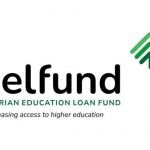The National Education Loan Fund (NELFUND), launched less than a year ago to address the financial challenges of Nigerian students, is now facing serious scrutiny. The Independent Corrupt Practices and Other Related Offences Commission (ICPC) has revealed that discrepancies have emerged in the disbursement figures and administration of the student loan scheme. According to the Commission, approximately N44.2 billion has been disbursed to 299 beneficiary institutions, with 293,178 students listed as beneficiaries.
This revelation has prompted a full-scale investigation, with the ICPC confirming that it will now look beyond institutional recipients to examine individual student beneficiaries. The Commission stated that the situation clearly indicates irregularities in the loan process, signaling a potential breach in accountability and transparency. It also assured the public that updates will be provided as the probe progresses.
NELFUND was signed into law on April 3, 2024, under the administration of President Bola Tinubu. It was celebrated as a groundbreaking policy aimed at creating access to sustainable higher education and vocational training for young Nigerians. The scheme is designed to support students with tuition, fees, and living expenses across approved tertiary and vocational institutions within the country.
The fund operates under a board of directors drawn from key federal ministries, agencies, and regulatory bodies, with the Federal Ministries of Finance and Education playing key roles. The daily affairs of the Fund are managed by Akintunde Sawyerr, the appointed Managing Director.
As of February 3, 2025, NELFUND had reported disbursements totaling N20.07 billion in institutional fees, reaching over 192,000 students across various institutions. These figures, however, now stand in contrast to newer claims that over N44 billion has been distributed, raising questions about the consistency and authenticity of the reports. The Fund has also rejected claims that it disbursed more than N104 billion, describing such reports as false and misleading.
The unfolding situation casts a shadow over what was supposed to be a transformative initiative for Nigerian education. Analysts say that while the Fund’s goal remains crucial for national development, accountability must be enforced to prevent corruption from undermining public trust.
As the ICPC expands its investigation, there are growing calls from civil society organizations and education stakeholders for an independent audit of the Fund. They argue that transparency is essential not only for restoring confidence in the scheme but also for ensuring that the students most in need are not left behind due to systemic failures.
For now, the spotlight remains firmly on NELFUND and its managers, as Nigerians await clear answers on how funds intended to support the nation’s youth are being utilized.










